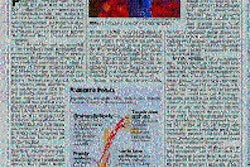Complaints from companies who say they've been unfairly drubbed by OSHA have been heard loud and clear by both Republicans in Congress and by the Clinton administration. Alfred Teo, president of Alpha Industries, says OSHA's problems with his Omega plastics division are "overblown and exaggerated." OSHA levied a whopping $1.386 million fine against Omega on May 16 for 22 "willful" machine guarding violations. Only one thing is not in dispute. Omega should have had machine guards on its 11 printing presses, but did not, failing to install guards even after repeated accidents. But Omega says that mitigating circumstances should have forced OSHA to go easier on the company. When OSHA inspectors visited Omega's Lyndhurst, NJ, plant on November 22, 1994, after being tipped off about a recent accident by local police, they looked at the company's OSHA 200 log, where injuries are recorded. There had been 10 accidents on the plastic bag printing line between October 1993 and November 1994. Those accidents had been accurately recorded by Omega. The latest one resulted from a worker getting his hand caught momentarily in a press, which required him to have skin grafted from his leg onto a 2" portion of his arm. That was done on an out-patient basis; the employee lost two months of work. The man had been explicitly warned by a supervisor prior to the accident not to do what occasioned the accident. Another employee lost the tip of a finger in an accident.
Dr. Jekyll and Mr. OSHA (sidebar)
Is OSHA too nit-picky?
Aug 31, 1995
Companies in this article
Machinery Basics
Annual Outlook Report: Automation & Robotics
What's in store for CPGs in 2025 and beyond? Packaging World editors explore the survey responses from 118 brand owners, CPG, and FMCG Packaging World readers for its new Annual Outlook Report.
Download
The AI revolution in packaging robotics is here
Robots that see variations, adjust grip pressure automatically, accept plain-English commands, and predict their own maintenance. Discover how AI is transforming packaging operations.
Read More
Downloads
























